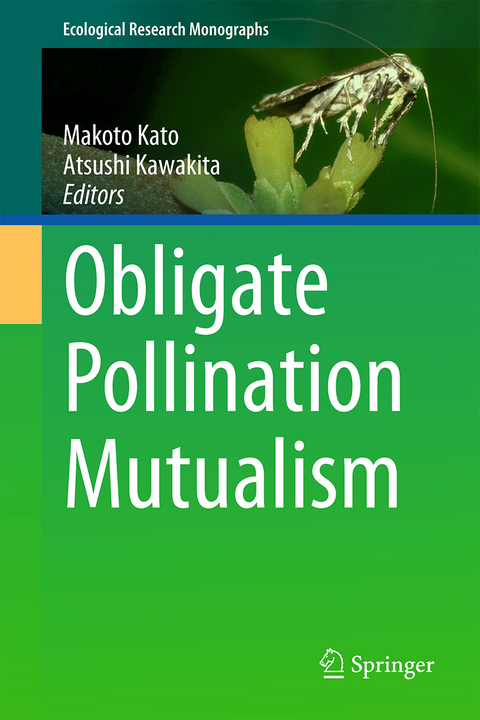
Obligate Pollination Mutualism
Springer Verlag, Japan
978-4-431-56530-7 (ISBN)
This book offers researchers and students in the field of ecology, botany, evolutionary biology, pollination biology, entomology, and tropical biology fascinating insights into why such a costly pollination system has evolved and why Phyllanthaceae is so diverse despite the inconspicuousness of their flowers.
Makoto Kato, Ph.D. Professor, Graduate School of Human and Environmental Studies, Kyoto University, Japan Atsushi Kawakita, Ph.D. Associate Professor, Center for Ecological Research, Kyoto University, Japan
Preface.- Acknowledgments.- Part I Natural History.- 1. Introduction (M. Kato).- 2 History and Natural History of Plants and Their Associates (M. Kato).- 3 Biology of the Obligate Pollination Mutualism (M. Kato and A. Kawakita).- 4 Diversity of Phyllanthaceae (A. Kawakita and M. Kato).- 5 Diversity of Pollinator Moths (A. Kawakita and M. Kato).- 6 Origin of Active Pollination and Mutualism (A. Kawakita and M. Kato).- Part II Ecology.- 7 Reinforced Specificity of Pollinator Moths (A. Kawakita and M. Kato).- 8 Species-Specific Floral Scents as Olfactory Cues in Pollinator Moths (T. Okamoto).- 9 Role of Selective Flower Abortion in the Maintenance of Obligate Pollination Mutualism (R. Goto).- Part III Evolution.- 10 Cospeciation and Host Shift (A. Kawakita and M. Kato).- 11 Reversal of Mutualism (A. Kawakita).- 12 Phyllantheae– Mutualistic Interactions on Oceanic Islands in the Pacific (David Hembry).- 13 Evolution and Diversity of Obligate Pollination Mutualisms (A. Kawakita and M. Kato).- Literature Cited.- Index.
| Erscheinungsdatum | 01.06.2017 |
|---|---|
| Reihe/Serie | Ecological Research Monographs | Ecological Research Monographs |
| Zusatzinfo | 87 Illustrations, color; 38 Illustrations, black and white; XII, 309 p. 125 illus., 87 illus. in color. |
| Verlagsort | Tokyo |
| Sprache | englisch |
| Maße | 155 x 235 mm |
| Themenwelt | Naturwissenschaften ► Biologie ► Botanik |
| Naturwissenschaften ► Biologie ► Evolution | |
| Naturwissenschaften ► Biologie ► Zoologie | |
| Schlagworte | Active pollination • Coevolution • Epicephala • Glochidion • Leafflower • Phyllanthaceae • Phyllanthus • Pollination mutualism • Speciation |
| ISBN-10 | 4-431-56530-2 / 4431565302 |
| ISBN-13 | 978-4-431-56530-7 / 9784431565307 |
| Zustand | Neuware |
| Haben Sie eine Frage zum Produkt? |
aus dem Bereich


